14 Foods You Should Never Freeze
From lettuce to cream cheese, there are certain foods you shouldn't freeze.
Freezing excess food seems like a great alternative to throwing it away, but some foods don't do as well in the freezer as others. Freezer burn isn't the only thing you need to watch; certain ingredients can totally break down and lose quality once frozen and thawed. These foods should never be stored in your freezer, but if you do, we have a few tips on how you can use them.
Leafy Greens
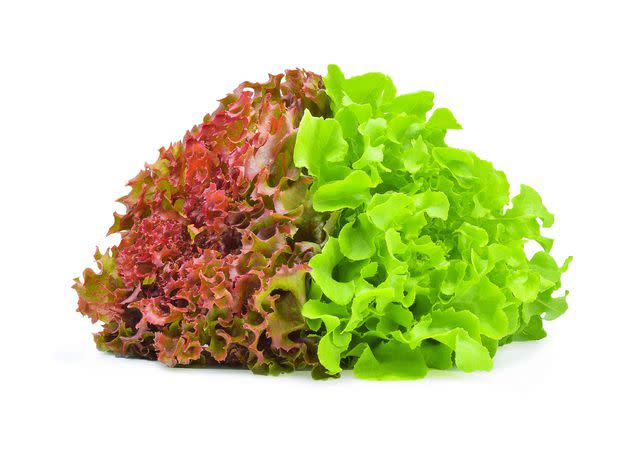
Leafy greens contain a lot of water. When you freeze greens, that water expands and bursts the cell walls that maintain a leaf's structure, resulting in soggy and limp lettuce. If you have ever left a head of lettuce in the refrigerator for too long, you understand this concept. Use leftover leafy greens in main dish salads or stirred into soups and stews—just don't freeze them.
Raw Eggs
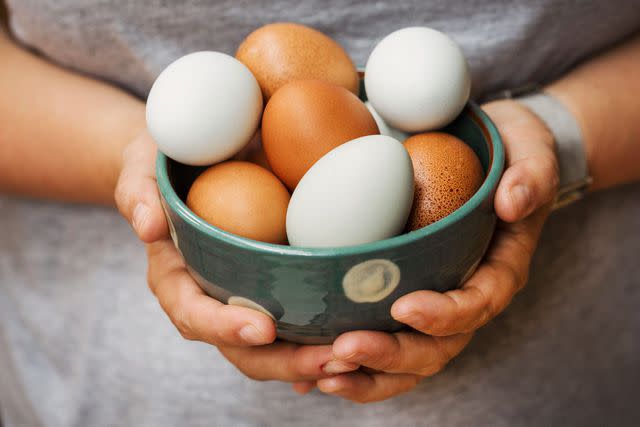
Eggs cooked into popular and convenient breakfast casseroles are fine to freeze. However, don't try to freeze raw eggs in the shell. The egg will expand when frozen, which may cause the shell to crack, wasting food and leaving a mess in the freezer.
Cheese
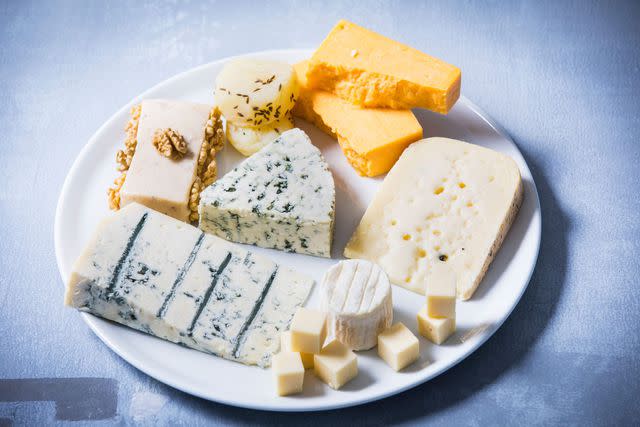
As with other foods, if you freeze cheese you risk ruining the quality of the product— and cheese is often just too expensive to waste. Freezing can alter both the texture and taste of cheese, especially if it is soft, aged, or has air pockets. If you have a block of Parmesan or Cheddar that you don't want to toss, go ahead and cube it or grate it, put it in a freezer safe bag, and save it for casseroles and soups (and don't forget to add the Parmesan rind to the soup for deeper flavor). If you have a quality hunk of Brie that you don't want to waste, it's best to go ahead and use it up now.
Avocado
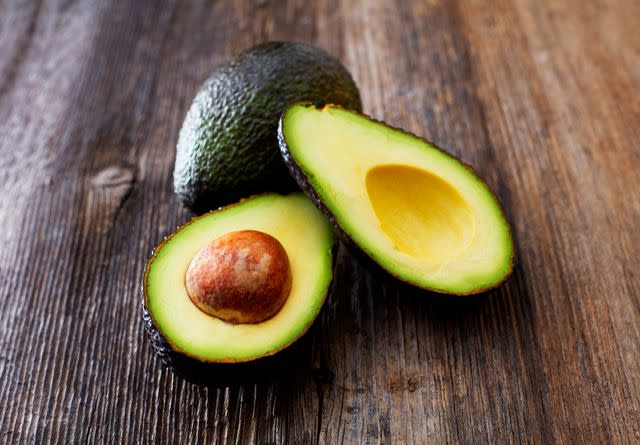
The creamy, buttery texture is one of the things we love most about an avocado, so don't ruin it by freezing the leftover half. It will become slimy, mushy, and incredibly unappealing. Bottom line: Don't freeze it. To properly store a leftover half of an avocado, coat the flesh with fresh lemon juice, wrap the avocado half in plastic wrap, and place in the fridge.
Sour Cream
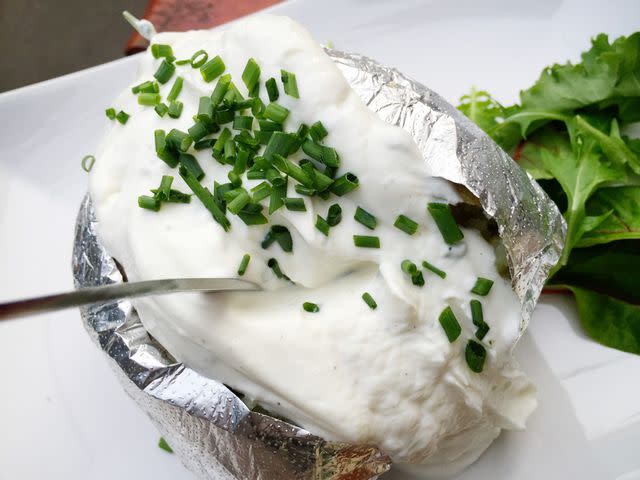
If you plan to use it in cooking or for baking a pound cake, go ahead and freeze sour cream. But it is not recommended if you are going to top a baked potato or use it in a dip. Like a lot of dairy products, sour cream will separate when frozen and take on the lumpy consistency of cottage cheese. It's certainly safe to use, but thawed sour cream won't have the creamy texture you would expect.
Yogurt
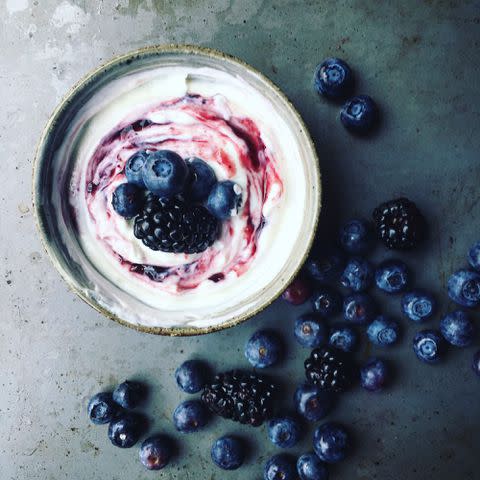
If you freeze yogurt, a dairy product, it can separate and become watery and grainy when thawed. Even worse, the yogurt may acquire an acidic taste and some of the live, good-for-you bacterial cultures found in yogurt may be destroyed by the freezing process. It is still ok to eat, however, if the altered taste and texture don't bother you.
Jell-O
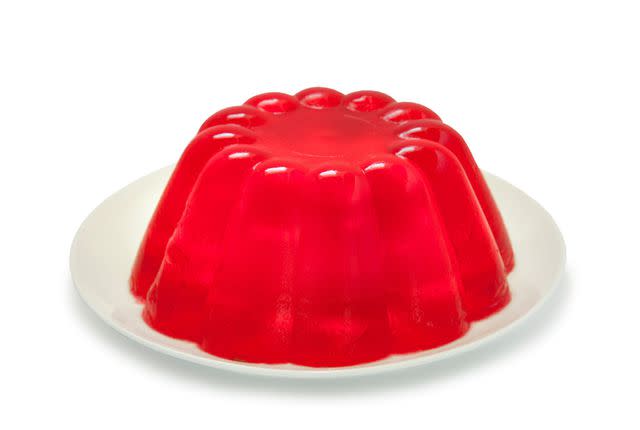
When put in the freezer, the gelatin content in Jell-O prevents it from hardening like ice. Freezing damages the polymers and colloids that bind gelatin together, which in turn ruins the texture of Jell-O. When thawed, your lovely congealed salad will separate, and you will lose the chance to "watch it jiggle and see it wiggle."
Cream Cheese
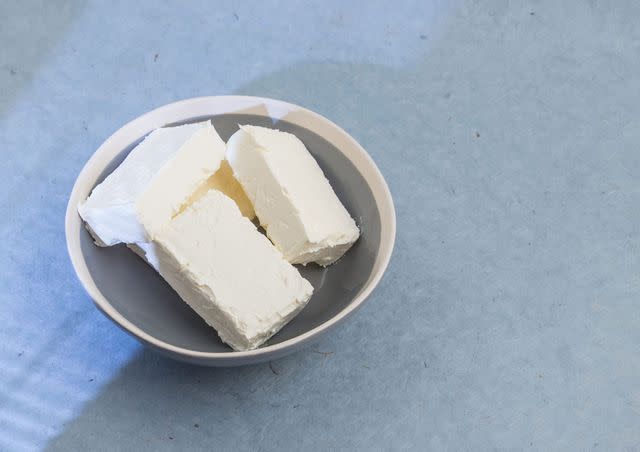
While you can freeze cream cheese, like a lot of other dairy products, it can become grainy when defrosted. It's still perfectly safe to use, but we don't recommend using it as a spread on a bagel. Defrosted cream cheese is great for baking however, just allow plenty of time for the block to thaw before using. For best freezing results, freeze cream cheese unopened in its original packaging.
Fried Foods

Fried chicken and breaded mozzarella sticks are always best served hot. If freezing is your only alternative to throwing cooked food out, however, these items won't spoil if you have to take this route. Just know the hot-out-of-the-skillet crispy crust is likely to be mushy once reheated.
Raw Vegetables
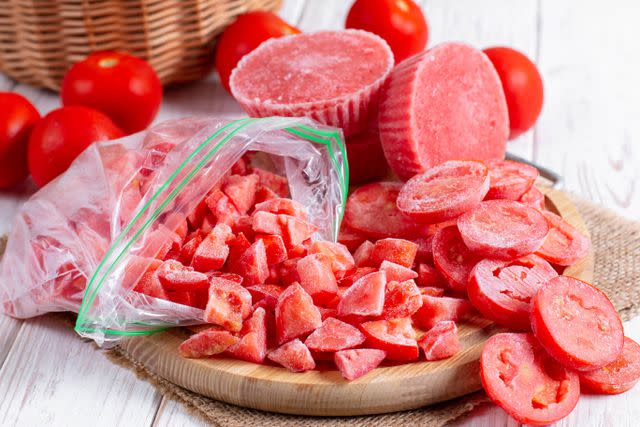
Getty Images
If you freeze diced onions or peppers, you should not expect them to retain their crunch. Do not freeze raw vegetables with a high moisture content, such as tomatoes, potatoes, or cucumbers, with the thought of eating it raw later. The moisture that keeps the food crisp and intact while fresh and raw will turn that vegetable into a mush after thawing—imagine a thawed cucumber. Get the picture? Instead of freezing surplus raw vegetables, turn them into a product that can be frozen, such as a homemade marinara sauce or mashed potatoes. If you do freeze your bumper crop of tomatoes, expect to cook them down in sauces or stews.
Fresh Herbs
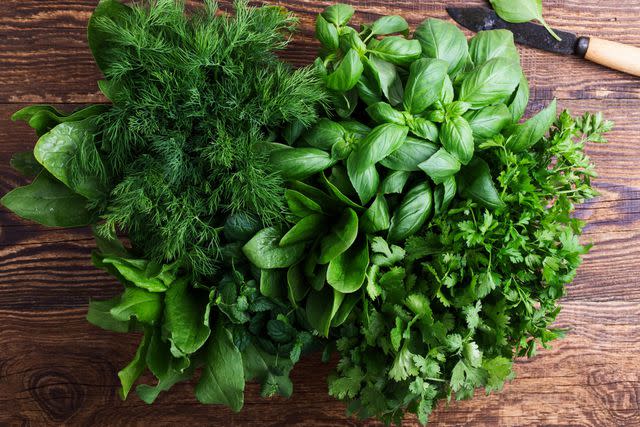
A sprig of fresh rosemary or a smattering of basil leaves can really spruce up a dish. Yes, you can freeze herbs, but don't expect the thawed version to be as bright and crisp as the fresh. Instead of using them as a garnish, frozen herbs work best when stirred into sauces, pasta dishes, and salad dressings.
Condiments
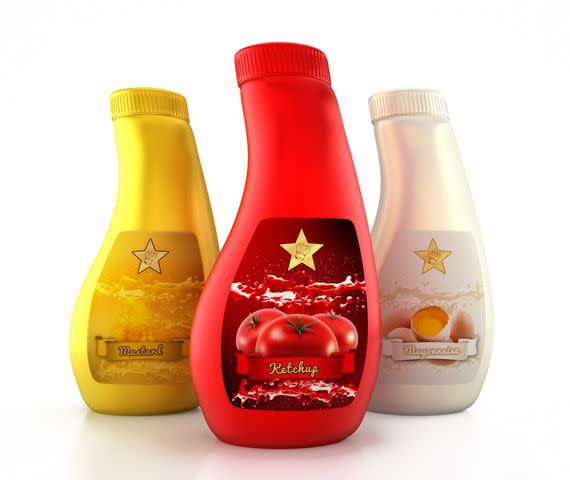
Unless you are feeding a school or an army, buying certain items in bulk is not always the smartest thing to do. How long would it really take you to use up gallon-size containers of mustard and mayonnaise? Don't even think about freezing them, because the ingredients will separate and create something totally un-appetizing. This is especially true for mayonnaise.
Cooked Pasta Or Rice
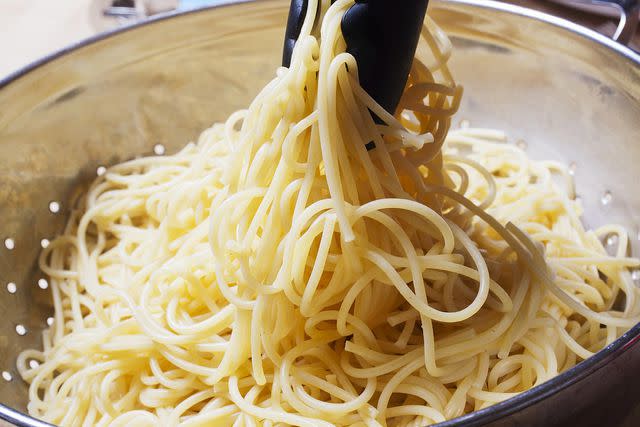
So you dumped the whole of box of pasta into the pot on accident, and now you're stuck with too many noodles. Whatever you do, don't freeze them. Freezing cooked pasta or rice may seem like a good idea, but much like leafy greens, the water in the starches expands and bursts the cell walls of the noodles or grains. When thawed, this results in a mushy mess, much like overcooked pasta or rice.
Certain Icings
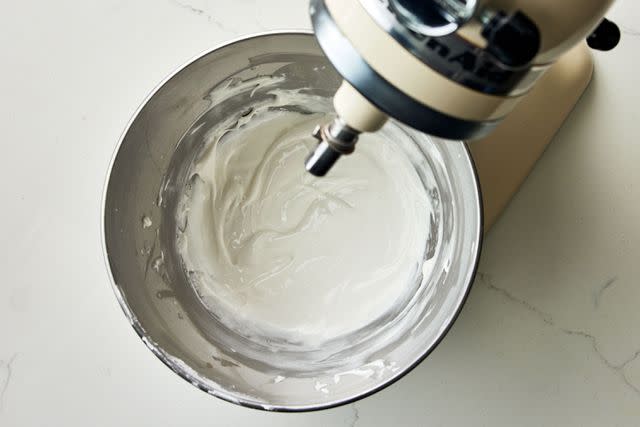
Greg DuPree; Food Stylist: Ali Ramee; Prop Stylist: Hannah Greenwood
A rich buttercream frosting will likely make it through the freezing process, but egg-white based icings like royal icing will not. When the icing thaws, the egg whites will weep and froth—which likely is not what you had in mind for your cookies.
For more Southern Living news, make sure to sign up for our newsletter!
Read the original article on Southern Living.